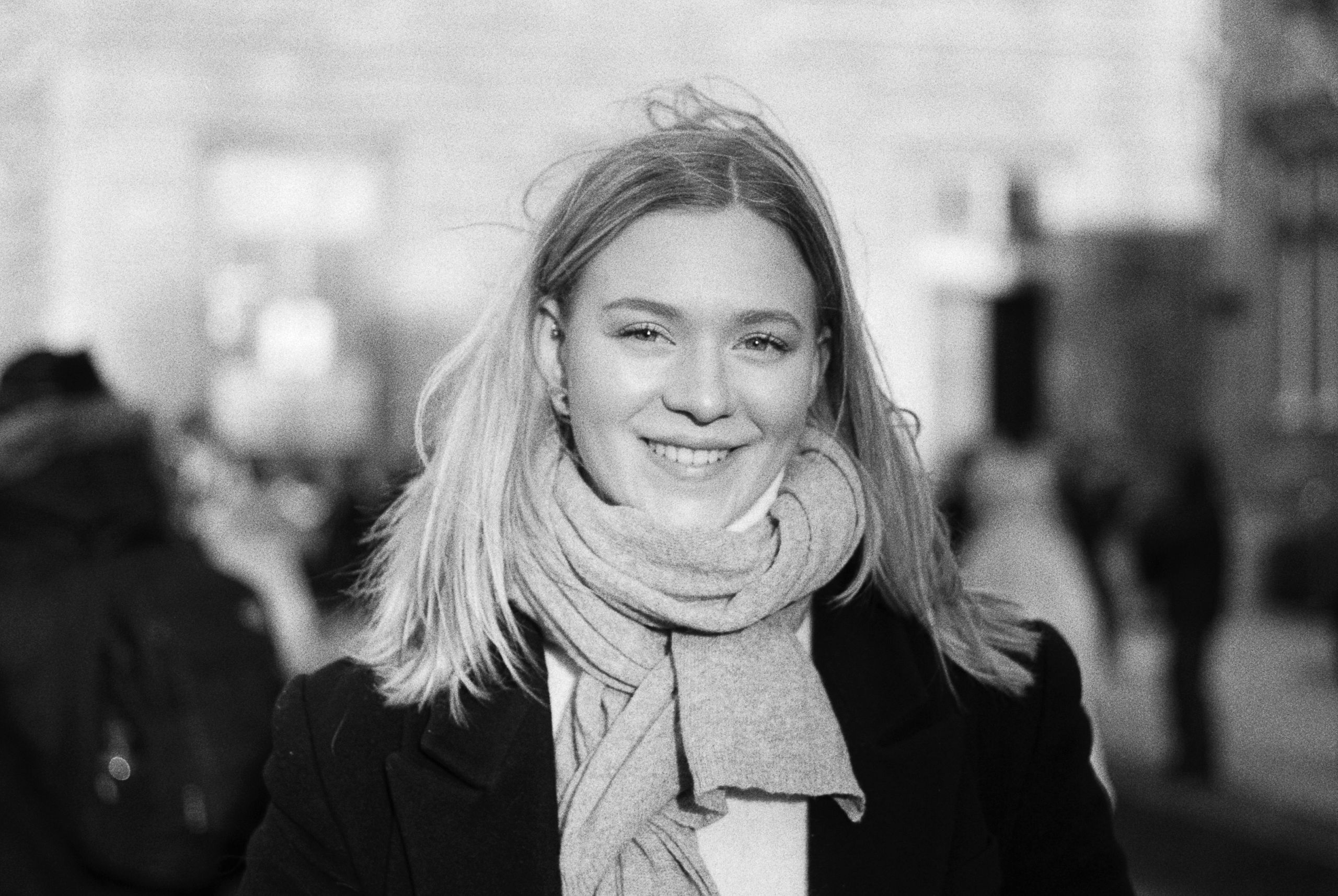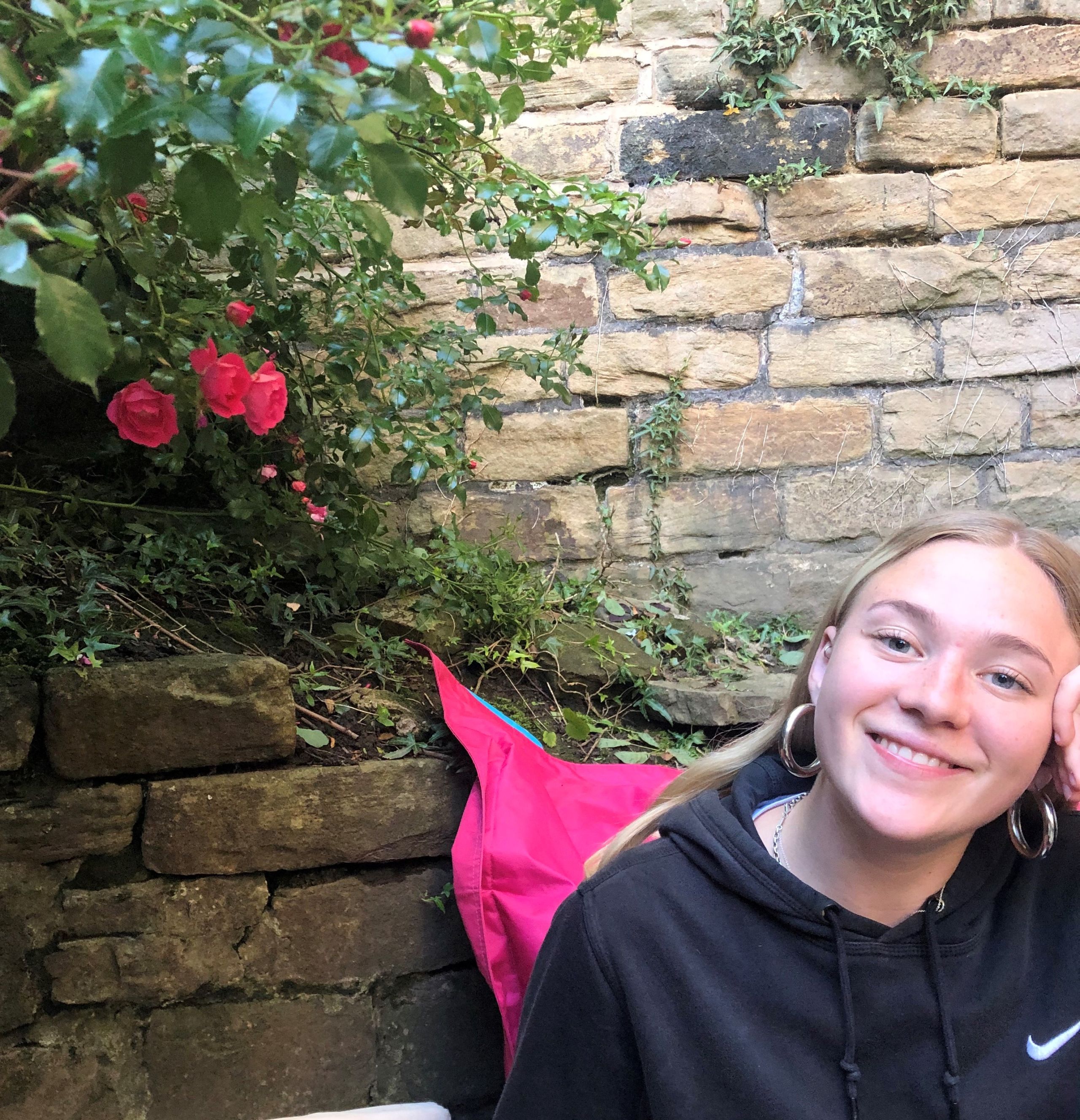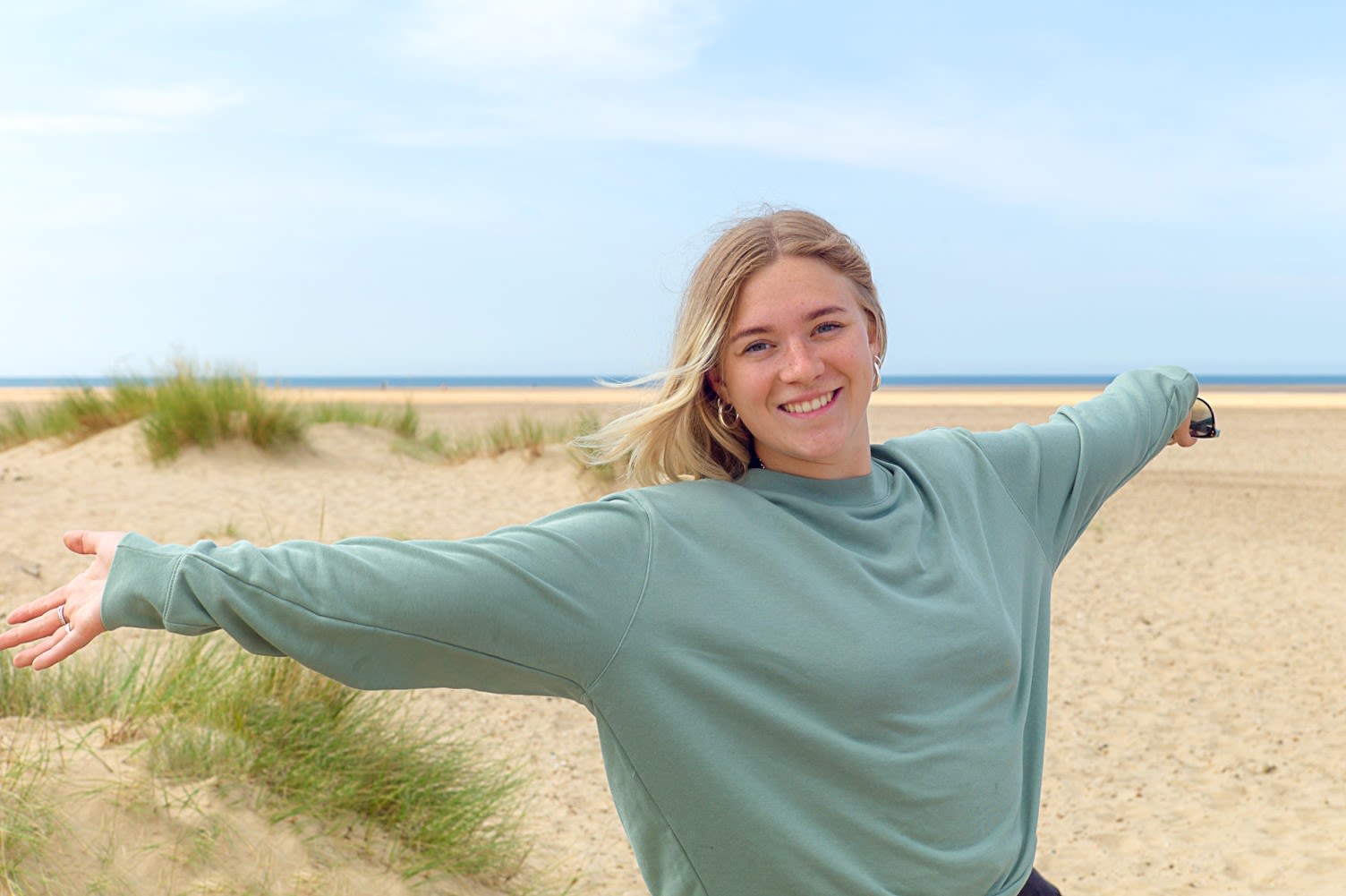

Profile: Madeline Platt
Early Primary PGCE trainee who was once told that she might never be able to have a career in teaching

Madeline Platt, 22, is a trainee on our Early Primary PGCE course, and has been passionate about working with children for as long as she can remember. Because she has dyslexia, however, she was told by some that she would never be able to pursue an academically-based career. Here, she discusses the journey that led her to a teacher-training course at Cambridge, what it’s been like joining the Faculty during a pandemic, and why she is starting to think that teachers are basically ‘superhumans’.
I’m not the only person in my family studying at the Faculty of Education
I’m originally from Cambridge and my Mum was a teacher at St Matthew’s Primary School for more than 20 years. Recently she decided to do a Masters course at the Faculty, so we’re both here at the same time! She is one of the main reasons I’m doing this. I’ve only ever known her as a teacher and always loved that aspect of her: the way she is so warm and great with children.
Teaching was something I always imagined doing
I come from a big family and at get-togethers I would always end up looking after the younger children. I got a reputation for being a bit of a baby-whisperer! Because of Mum’s job I also often found myself chatting to the children in her class and volunteered in her classroom from time to time. I also volunteered at a local youth group for children with autism.
This meant teaching was always something I wanted to do. I even went and taught out in India after leaving school. To pay for the trip, I worked as a one-to-one teaching assistant at another local primary school helping three boys, all of whom had very different needs. I then spent three months in Chennai with a charity that supports disadvantaged children. When I arrived, the teacher to whom I had been assigned said: “I’m going to watch you do two lessons, and if you’re any good I need you to run some classes.” I basically ended up being put in charge of 10 four-to-eight-year-olds for about a month! The work in the primary school beforehand turned out to be very good preparation.

One teacher told my parents that I wasn’t going to get any GCSEs or A-Levels
Because of my dyslexia, some people told me I would never have a teaching career
I was diagnosed at eight. Being dyslexic, I wasn’t really attracted to academic subjects. In primary school, I remember being taken out of all of my favourite lessons and into this miserable, dark side room to do extra reading.
It definitely affected my self-confidence. One secondary teacher even told my parents that I wasn’t going to get any GCSEs or A-Levels and would probably have to take a vocational path. It’s hard to remember how I felt now, but I think I was probably just a bit shocked. My parents were great; they weren’t prepared to let it define me. Neither was I.
Being involved in arts productions really helped to change things
I always did arts activities outside school. For some reason I just loved being on the stage. My secondary school did really amazing theatre productions and when I was in year seven, a friend and I signed up to be in a production of Grease. We were two of the youngest ones in it, and after that I just kept on going.
Performing really helped to build my confidence. It felt like I’d found something I was good at, and that transformed my academic career. I got 10 GCSEs (including an A* in English Literature), and A-Levels in History, Sociology, and Performing Arts and Theatre Studies. Eventually, I went to the University of Sheffield to study Education, Culture and Childhood. One of the strengths of my course was the requirement to do an educational placement in the second year. I was fortunate enough to be given the opportunity to work as a volunteer alongside the teachers at Sheffield’s children’s hospital school. Here I learned about a very particular type of teaching and became even more committed to my decision to pursue a teaching career.
I’ve realised how much teachers and schools could be doing children a disservice unless we can challenge and improve what we are doing

I chose the Cambridge PGCE course because I really enjoy understanding what works in education and why
I had always thought I would love to go to Cambridge once I reached the PGCE stage if I could. But at Sheffield, I also discovered that I enjoyed exploring educational research and thinking about how different theories could be applied to my own practice. The Cambridge course is all about that so it seemed like a natural next step. It was also really exciting to think that I might be taught by the people who wrote all the books I had been reading! The more I’ve learned, the more I’ve realised how much teachers and schools could be doing children a disservice unless we can challenge and improve what we are doing. I want to be the best I possibly can for the children I’m going to be working with, and for me, understanding educational research is therefore really important. In one sense, I’m being kind to myself because I know that if I’ve had the best possible training, I will be able to make decisions with confidence. But it’s more about the children I’m going to teach and doing the right thing for them.
The staff are working tirelessly. I've loved the first few weeks of learning
I’m really grateful for all the effort the Faculty has been making to ensure that things are as normal as possible despite the pandemic
I really didn’t know what to expect walking into this, but it’s completely exceeded my expectations. I can’t fault the course so far: the staff are working tirelessly and I’ve loved the first few weeks of learning. Obviously, it’s been a bit strange. We have to stay in a small group, socially distance, wear masks, sanitise the desks, all that sort of thing. But the way the course is set up – even when we’re working online – it’s been possible to build positive relationships with our tutors, lecturers, and each other. I’ve made some really good friends. The support is so in-depth I don’t feel like I’ve missed out compared with ‘normal’ times.
I’m now starting my first placement at a primary school. We had about an hour and a half with our mentors and were given safety packs so that we understand the rules and regulations at the schools as well. I am absolutely over the moon that we can actually go into schools to work despite COVID. I think we all feel very lucky that we are getting such a positive experience in such strange and difficult time.
The course is showing me that there’s more to teaching than I ever imagined
What I’m starting to realise is that teaching is about more than just learning theories and applying them. You get this deeper sense of perspective the more you learn, and without that I think that I would struggle to deal with the random situations that arise in a school.
Every time I walk away from a session at the Faculty I realise how complicated being a teacher really is and how much you have to treat the job with respect. You’re in charge of a group of children and you have to try to treat each one like they are the most important person in the world. Every little thing you do could make a big difference to their future, so you constantly have to weigh up different considerations and ideas to do the very best for them. I think that’s exciting. Teachers are like superhumans, really, because they’re doing that every single day.
